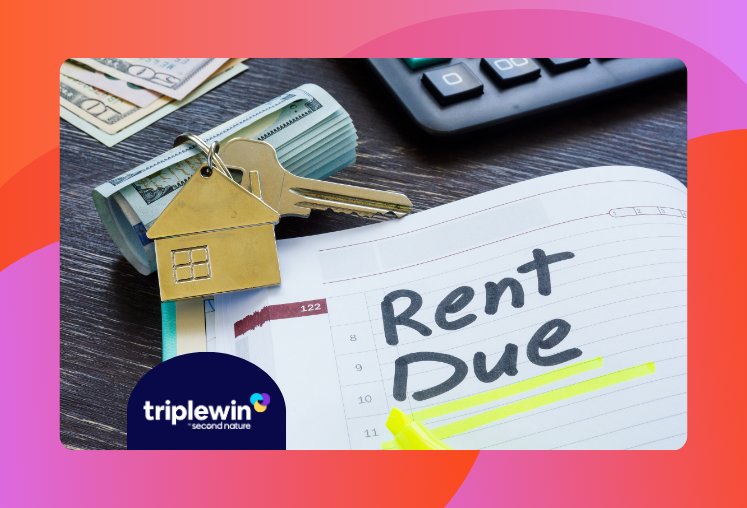What we'll cover
What Property Management Fees Are Standard?
What Are the Factors that Influence Property Management Fees?
How Should Property Managers Structure Fees?
What Are the Benefits and Challenges of Charging Property Management Fees?
How Do Fees Help Property Managers Add Value and Create a Positive Resident Experience?
How Can I Use Fees to Generate Ancillary Income?
Fee FAQs
If you’re familiar with Second Nature, you know that supporting SFR property managers in building triple win experiences is our focus. So today, we’re taking on the thorny topic of property management fees within SFR property management companies. And we’re turning to one of the leading industry educators on the subject: Todd Ortscheid, owner of PM Assist.
Here’s what we’ll cover in this article.
Key Learning Objectives:
- How to structure your property management fees for growth
- The benefits and challenges of charging property management fees
- How you can use fees to add value for yourself, your clients, and your residents
- How to introduce fees without turning clients off
- Examples of property management fees you might not be employing (yet)
Meet the Expert: Todd Ortscheid
Todd spent 14 years as an airline pilot – an industry known for capitalizing on fee structures as a growth strategy. He took over his father’s property management company after the 2008 real estate crash and eventually tripled the company’s number of doors. As the co-owner of PM Assist, he offers training and counsel on finding new ways to increase company revenue, process automation, and profit per unit.
Todd is a true entrepreneur and creative thinker, with ideas that challenge the status quo and may even ruffle some feathers. But Todd’s strategies have proven to help grow property management companies, and we’re thrilled to share his insights.
Related: State of Resident Experience Study

What Property Management Fees Are Standard?
You should be seeing income on anything you’re spending money on as well. Anything you want to do to create more value for residents or investors? You should charge a fee for that so your company can stay competitive and your employees can get paid.
Here are a few examples to get you started.
Inspection & Maintenance Fees
How much time are you spending on periodic property inspections? How much money are you spending on maintenance costs? How valuable is your staff's time?
Todd says, “You have to be charging for this. Don't just include maintenance requests and inspections as part of your monthly management fee.”
Marketing Fees
Todd says, “I'm sure a lot of you are probably in markets where Zillow started charging you to put your listings on their website. And I've heard a lot of property managers say it's just a cost we're absorbing. Don't do that. Pass on that cost. Call it a marketing fee or the Zillow fee or whatever you want to make sure you're making money on that. Never pay for your own property management costs – come up with some way to cover all of these costs that you have for your business.”
Insurance Risk Mitigation Fees
If your investor doesn’t have insurance, you are often the one who will suffer.
Todd advises charging a fee if your investor doesn’t send a policy within 30 days.
“Tell them, ‘This new fee will be charged as a mitigation fee for the additional risk we have.’ You will not believe how quickly people will send you their insurance policies if you do this. We only charged a nominal fee. But a flood of emails came in after I sent out that notice to owners. So this isn't about making more money. For the most part, it's about influencing behavior and ensuring you get the insurance policies you need.”
Account Creation Fees
As a property manager, you can charge a set fee to investors to create an account with your company. This fee may or may not cover various other costs such as any related property inspection requirements or tenant communications.
Recurring Management Fees
Recurring (typically monthly) property management fees are extremely common in the industry, and will be built into the initial contract signed between the investor and the property management company. The amount can be based on a flat fee structure, or tied to a percentage of the monthly rent collected.
Vendor Screening Fees
It’s a hassle to use vendors outside your usual network.
“If you have property owners who want to use their vendor instead of your preferred vendors, that creates more work for you.”
If you charge a flat fee, they’ll likely drop it, and you’ve saved yourself that extra work. If they want to keep their vendors and pay the fee, at least you’re getting paid for that extra work.”
Rent Protection Fees or Eviction Fee
A huge area of value for investors is protecting them from unwanted risk. Investors have to deal with concerns about evictions, lost rental income, and more. Property management companies can take on that risk for a fee. You can say you’ll cover missed rent if the investor pays a monthly fee.
The win for PMCs is that the risk is often low, and you can often control it (controlling for on-time rent due by charging late rent fees, for example). You get the fee, and you will rarely have to take the hit on the month’s rent.
The win for investors is they don’t have to worry about it at all.
Contract resiliation fees
For investors that terminate the property management contract prematurely, you can charge an early termination fee, the amount of which will vary depending on the contract's terms. The fee may cover a month or more of management fees.
Resident Fees
Todd emphasizes that the real moneymaker is resident fees. Plus, charging fees for unwanted behaviors – like late rent, paper leases, failure to change HVAC filters, etc. – can help drive better behavior.
Todd uses examples like
- Security deposit processing fee
- Leasing fee or a lease amendment fee
- Paper lease setup fee
- Lease renewal fee
- Late fee
- Special programs fee
“Of course, the resident benefit package is the big one. This is a way for you to provide additional services to your residents and make some money off of it.”
What Are the Factors that Influence Property Management Fees?
Ultimately, the fees you charge should reflect your operational reality, and can vary depending on a range of factors:
- Property location: Properties located in areas with higher operational expenses may incur higher management fees compared to those in other regions.
- Property condition: The condition of the property, and whether it is new or renovated, affects maintenance requirements and thus can influence management costs.
- Property size: The size of the rental property directly influences the workload of the property manager, with larger properties typically incurring higher fees.
Scope of services: The range of services provided by the property management company significantly impacts the fees charged. Basic services like rent collection command lower fees, while comprehensive management services covering rent collection, vacancy filling, repairs, evictions, and financial record-keeping for taxes entail higher costs.
How Should Property Managers Structure Fees?
Real estate investors often focus on determining what fair or typical property management pricing should be. A general rental property management fee includes collecting the month’s rent, following up on arrears, organizing property maintenance and repairs, and keeping abreast of legal requirements.
That’s the baseline. But the growth is in what you do on top of that baseline.
Todd breaks down pricing like this:
“Only 40% of your revenue should come from your property management fee. 60% of our revenue is not management-fee related. If most of your money comes from your management fee, you're doing it wrong. That's not going to last very long.”
And here’s the difference those added fees can make to your bottom line:
“According to recent numbers from Profit Coach, the average PM company gets about $170 a month in revenue. $170 per door per month. I just looked at the profit coach dashboard for my company, and over the last 12 months, we have averaged $320 per unit per month.”
The nugget in there is that the market should determine your base property management fee. But that often cheats PMCs, giving property managers extra work without fairly compensating them for the additional time, effort and cost. You can – and, according to Todd, you should – be charging for that extra work and extra value that you provide as a professional.
Note: Todd emphasizes that ALL fees should be communicated upfront during the onboarding process and lease agreement. Fees aren’t about tricky pricing or hidden markups. They’re about charging for value and driving behavior.
What Are the Benefits and Challenges of Charging Property Management Fees?
Let’s look at some of the pros and cons of charging additional fees for your additional property management services.
Benefit 1: More Revenue = Better Service
Todd points out that you can't really provide the level of service that you want if you don't have enough revenue coming in.
“We've got to be able to provide fantastic service, and the only way you can do that is with revenue. You have to start looking at this as something that you have to do. Your clients and your residents are suffering if you don't.”
It’s a fantasy to think we can offer premium service without paying for the resources they cost us.
Benefit 2: More Revenue = Happier Employees
Your team deserves to be paid for their work, especially if it’s extra work caused by a difficult resident or investor. Fees help reduce workload because they discourage behaviors that add to busy work. But more on that in the next section.
Todd says:
“Property management company owners talk to me all the time about how they can't afford to pay higher wages in the current market. The reason you can't take better care of your employees is that you're struggling to get by just on a basic management fee. Charging fees for what your services are worth is the only way you’re going to be able to provide competitive wages and benefits.”
Benefit 3: Charging for Service Drives Better Habits
According to Todd, fees drive behavior. Your investors and residents will respond to fees in a way they may not respond to anything else.
For example, home warranties are a huge hassle for everyone. If you want to discourage investors from using a warranty company, simply charge a fee for anyone that does.
On the resident side, an example is late payment fees. If you communicate from the start that late payments will draw a fee – you’ll notice how payments come in on time much more often.
Benefit 4: Greater Profits
This one speaks for itself. But here’s what Todd says:
“Never pay for your own cost of running your business. This isn't a charity. Every single expense in your company should be tied to some income you're going to make.”

Challenge 1: Will Investors Be Turned Off by Fees?
In the long run, if you’re charging fees for premium services, you can provide a better outcome for investors. But how can you get them on board with this concept?
Todd says it’s all in the language we use.
“People don't understand that the management fee is really a rent collection fee. We shouldn't call it a management fee because it makes it sound like everything we do is included, which is of course, crazy. There's so much that can't be looped into that one thing. We should call it a rent collection fee because that's really what it is. You've got to get your mindset right on this stuff. Don't be afraid of it.”
Challenge 2: Regulations (AKA: Always Talk to Your Attorney First)
Regulations vary across regions, so rental property managers must be familiar with local laws. You may not be allowed to charge fees for certain types of services. But you can almost always categorize a service within an administrative fee.
But discussing any fees and contracts with your attorney before implementing them in the real world is key. Oh, and you should charge for your legal fees!
How Do Fees Help Property Managers Add Value and Create a Positive Resident Experience?
The additional fees generated by delivering new and higher service levels are a reflection of a positive, resident-focused experience.
In fact, such additional services are exactly what can set professionals apart from amateurs. Instead of letting increasing competition cut your legs from under you, Todd advises finding ways to generate value that the amateur property managers or real estate agents-turned-property-managers can’t compete with.
And, of course, charge for that value.
“I always tell people that I don't like to say no to clients or residents,” Todd says. “Instead, I like to say, ‘Sure, we're happy to do that. And this is how much that costs.’ You just want to be careful and ensure you’re actually doing things that the owners will find valuable.
Charging fees allows a property management company to offer premium services and benefits they couldn’t if they didn’t have that extra revenue. It’s a perspective shift, but Todd believes we need to start viewing fees as a generative, value-driving approach to property management.
How Can I Use Fees to Generate Ancillary Income?
In the end, you might think of fees as a burden that will drive away investors, but the truth is the exact opposite. Fees help you drive more premium value for both your investors and your residents – and support your business and employees at the same time.
At Second Nature, that’s what we call a Triple Win. We aim to help property management companies drive Triple Wins like this all the time. We do it through the value proposition of a Resident Benefits Package. An RBP offers value to investors by delivering a full-service resident experience. And, yes, that’s something property managers charge a fee for!
Since it’s fully managed by our team, you can basically plug it in and let it drive value for you, your investors, and your residents.
Fee FAQs
Q: What is included in the property management fee?
Property management fees typically cover a range of services, which vary from company to company. Sample inclusions:
- inspection & maintenance fees
- marketing fees
- insurance risk mitigation fees
- account creation fees
- recurring management fees
- vendor screening fees
- rent protection fees or eviction fee
- contract resiliation fees
- security deposit processing fee
- leasing fee or a lease amendment fee
- paper lease setup fee
- lease renewal fee
- late fee
- special programs fee
Q: What is the average property management fee?
The average property management fee varies according to region and state, as well as from company to company. In addition, these fees are largely dependent on the value, responsibilities, and services the property manager brings to the table. Generally, they amount to a fixed percentage of collected rent, as opposed to a flat fee.
Topics:




